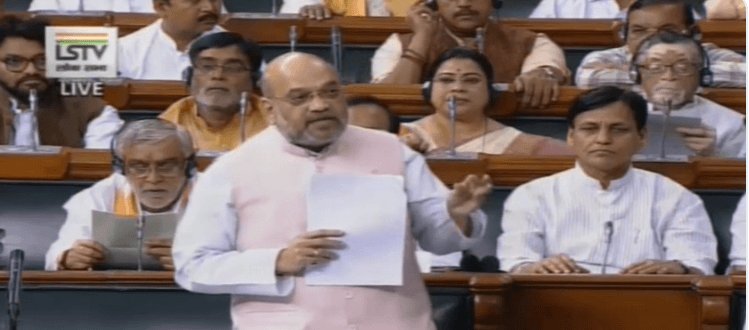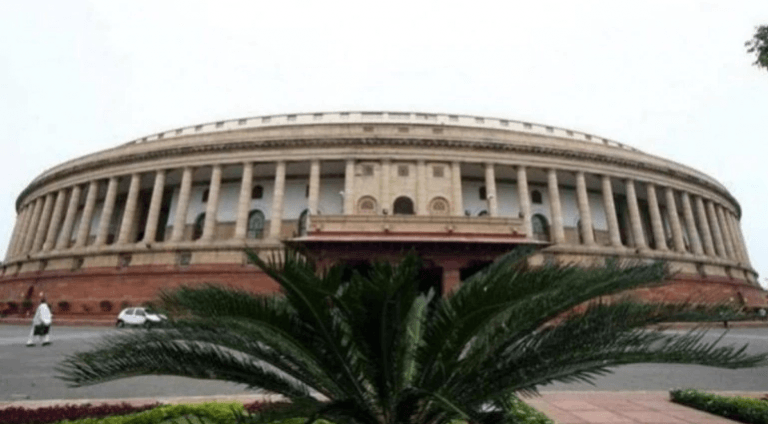
The Lok Sabha on Wednesday passed the Unlawful Activities Prevention (Amendment) Bill, which seeks to introduce a provision in the anti-terror act to designate individuals suspected to have terror links, instead of just organisations, as terrorists.
The Bill, tabled in the House by Minister of State for Home G Kishan Reddy, was passed with 278 members voting in favour and eight against it after Congress and TMC MPs walked out in protest, calling it draconian.
The Bill got the Lok Sabha's nod minutes after Home Minister Amit Shah put up a strong defence of the government's proposals, arguing that terrorists such as Indian Mujahideen's Yasin Bhatkal, who was under the radar for years, would have been caught much earlier if he had been designated a terrorist. Concluding the debate, Shah promised that the Modi government would never misuse its provisions.
"Terrorism is in people's tendency, not in organisations. There's a need for a provision to declare an individual as a terrorist. The UN has a procedure for it, the US has it, even Pakistan has it, China, Israel, European Union... Everyone has done it," Shah said.
Congress and several opposition parties staged a walkout after the Minister's reply demanding that the Bill be sent to a Standing Committee. Shah said the BJP-led government had only brought an amendment to the law which was enacted by the Congress and whose provisions were later made stringent. Responding to the arguments of other MPs, the Minister said what the Congress governments did "was right and what the BJP-led government is doing is also right".
Shah said, "The law was enacted in 1967 by a Congress government and amendments made to it in 2004, 2008 and 2013 when Congress was in power. Who made the law stringent? What you did was right, what we we are doing is also right." He asked opposition members about their concerns over powers of states when the Congress had made changes to the law. "There is a need for tough laws to end terrorism," Shah said.
Referring to the provisions of the Bill that allow an individual to be designated a terrorist, Shah said a terrorist often floats new organisations if a ban is imposed on an existing one. Minister of State for Home G Kishan Reddy on Tuesday moved the Bill for passage in the House mentioning that the government wanted to take strict steps against terrorism for which it had adopted a "zero tolerance" policy.

Under the UAPA Act, the central government may designate a group a terrorist organisation if it commits or participates in acts of terrorism, prepares for terrorism, promotes terrorism or is otherwise involved in terrorism. The Bill additionally empowers the government to designate individuals as terrorists on the same grounds.
As per the Act, an investigating officer is required to obtain the prior approval of the Director General of Police to seize properties that may be connected with terrorism. The Bill adds that if the investigation is conducted by an officer of the National Investigation Agency (NIA), the approval of the Director General of NIA would be required for seizure of such property. Under the Act, investigation of cases may be conducted by officers of the rank of Deputy Superintendent or Assistant Commissioner of Police or above. The Bill additionally empowers the officers of the NIA, of the rank of Inspector or above, to investigate cases.
The Act defines terrorist acts to include acts committed within the scope of any of the treaties listed in a schedule to the Act. The Schedule lists nine treaties including the Convention for the Suppression of Terrorist Bombings (1997) and the Convention against Taking of Hostages (1979). The Bill adds another treaty to the list: the International Convention for Suppression of Acts of Nuclear Terrorism (2005).









